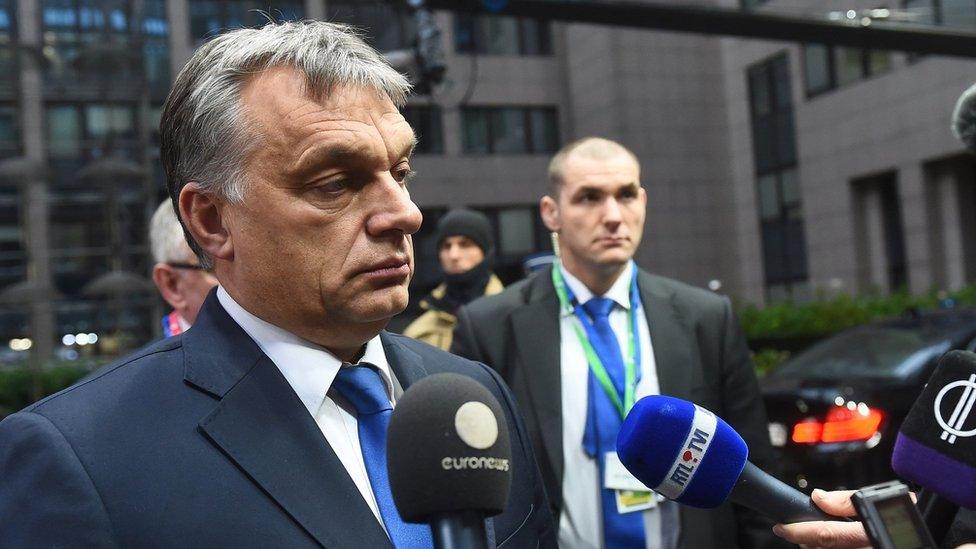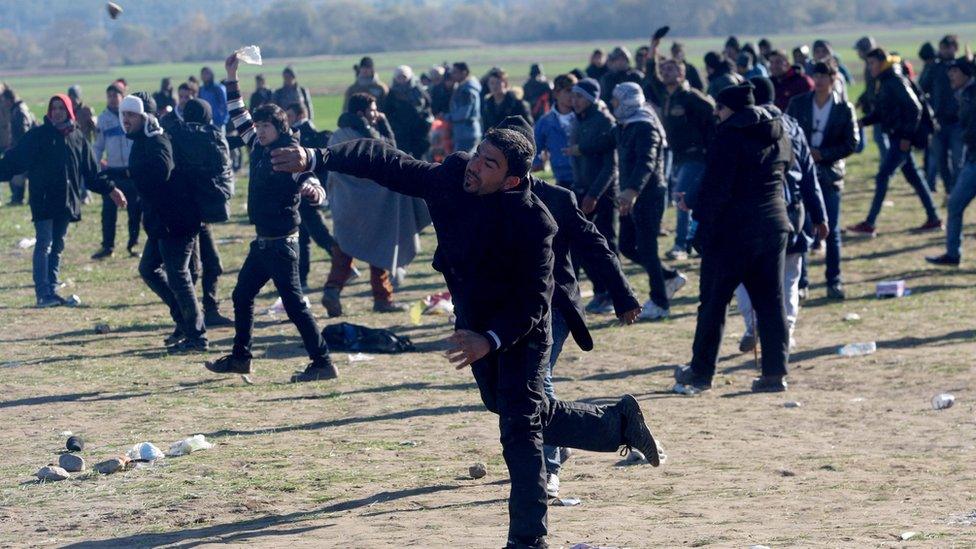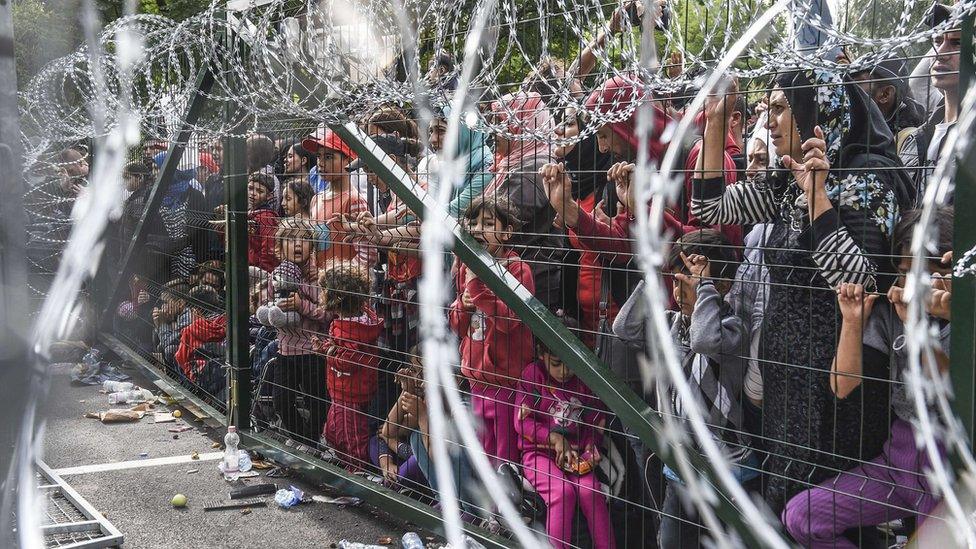Migrant crisis: Hungary challenges EU quota plan in court
- Published

Hungarian PM Viktor Orban has fiercely opposed mandatory migrant quotas
Hungary has filed a court challenge against an EU plan to distribute refugees among its member states.
More than 386,000 migrants passed through Hungary in 2015 before its borders were closed in October.
An organiser of the Paris attacks "recruited" some migrants from Budapest's main train station, Hungarian officials have said.
He then left Hungary with the men, PM Viktor Orban's chief of staff said, without providing more details.
A government spokesman confirmed to the Associated Press that the man was Salah Abdeslam, who remains on the run. The Paris attacks, on 13 November, killed 130 people.
Meanwhile, a migrant believed to be from Morocco has been electrocuted at the Greece-Macedonia border.
The man died after climbing onto the roof of a train carriage and touching an overhead cable during scuffles, local police said.

Clashes have also erupted between groups allowed to cross the border and those left behind
Macedonian authorities have only been letting in Syrians, Iraqis and Afghans who are fleeing conflict, sparking protests from groups of Pakistanis, Iranians and Moroccans.
Tear gas was fired on Thursday as police unsuccessfully moved to clear a border crossing blocked by those groups.
Some 5,000 people are now stuck at the border, including 43 busloads of Syrians, Iraqis and Afghans who arrived overnight.

On the scene - BBC Europe correspondent Chris Morris
Tear gas is fired, stones are thrown, but as darkness falls dozens of migrants are still blocking the border, refusing to move.
The UN has for now suspended food distribution because of safety concerns. Its store was looted this morning, and hundreds of Syrians who arrived overnight are sitting waiting. They are trapped with everyone else.
The situation on this border is not sustainable. The police have warned irregular migrants that they must go back to Athens, but no one seems to know how any of this should best be resolved.

In Hungary, national newspapers on Thursday carried full-page government adverts attacking the EU refugee relocation plan.
EU interior ministers approved the plan for mandatory quotas to distribute 120,000 refugees in September, despite opposition from several states including Hungary.
One message printed in a newspaper on Thursday read: "The quota increases the terror threat!"
Announcing the court challenge, PM Orban said it was "not enough to protest [at the EU plan], action must be taken".
Slovakia filed a similar court challenge on Wednesday.
Under the EU quota system, external, Hungary is expected to take 306 refugees from Italy and 988 refugees from Greece.

Migrants at a border fence on the Hungary-Serbia border in September
It was originally considered one of the "frontline" states in the migrant crisis and the plan would have seen 54,000 refugees relocated from its territory.
However due to its rejection of the plan, that number will instead be transferred from Italy and Greece, and Hungary has to accept a quota of refugees.
Over the summer, thousands of migrants congregated at Keleti railway station in Budapest, hoping to travel onwards to Austria and Germany.
On Thursday Hungarian government spokesman Janos Lazar revealed Abdeslam had been at the station but did not specify when.
He also failed to say whether the men he left with took part in the November 13 attacks in Paris.
A French source told AFP that a car rented by Abdeslam had been in Hungary on 17 September.
Austrian authorities have said he was stopped at a traffic check in Austria on 9 September, though the car carrying him and two others was travelling south from Germany, rather than west from Hungary.